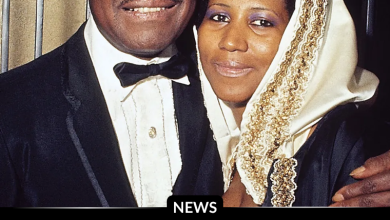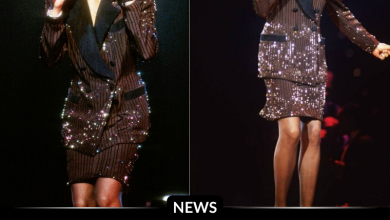“I Wasn’t Scared at All”: Aretha Franklin’s Defining Stand for Control and Self-Respect
OPINION: This article may contain commentary which reflects the author's opinion.
Aretha Franklin didn’t just sing about “Respect” — she lived it. Behind the stage lights and chart-topping hits, the Queen of Soul built a legacy not only through her voice but through her unshakable sense of self. In a candid reflection from the late 1980s, Franklin revealed how she made one of the boldest moves of her career: firing two managers in a single year to take back control of her life, her music, and her money.
“I wasn’t scared at all,” Franklin said, her tone resolute. “When you know your worth, you stop letting other people speak for you.”
Breaking the Chains
By the mid-1970s, Aretha Franklin was already a global icon. Songs like “Respect,” “Chain of Fools,” and “(You Make Me Feel Like) A Natural Woman” had cemented her as a musical powerhouse. But behind the fame, she faced a familiar struggle for artists — others making key decisions on her behalf.
“At some point, I realized contracts were being signed, shows were being booked, and I wasn’t even in the room,” she recalled. “I was being managed, but not represented.”
When one manager resisted transparency over finances and another ignored her creative direction, Franklin made a daring decision. She dismissed them both — all within a year.
“People told me, ‘You can’t do that; you’ll lose your footing,’” she said. “But I told them, ‘I’ve been standing on my own two feet since I was ten years old.’”
A Woman in Charge
For Franklin, the decision went far beyond business — it was about reclaiming identity and authority.
“The hardest thing for women in this business is saying ‘no,’” she reflected. “But once I started saying it, everything changed.”
After firing her managers, Franklin took full command of her career. She handled contract negotiations, personally approved tour logistics, and even reviewed promotional materials.
“I wanted to know where every dollar went and what every note meant,” she said. “Nobody was going to put my name on something I didn’t stand by.”
Her independence sparked a creative resurgence. The late 1970s and early 1980s marked a renewed era for Franklin, producing hits like “Jump to It” and “Freeway of Love,” as well as a Grammy-winning collaboration with Clive Davis.
“When I took charge, my music started to feel alive again,” she said. “I wasn’t following trends — I was setting them.”
The Cost — and the Reward — of Freedom
Franklin acknowledged that asserting herself came with resistance, particularly in an industry dominated by men.
“They’d try to talk around me,” she said. “I’d just look at them and say, ‘You can tell me directly — I’m the one signing the check.’”
Despite the pushback, Franklin found peace in independence.
“There’s a certain calm that comes with ownership,” she explained. “You rest easier when your name and your power belong to you.”
Still the Queen
Over the course of her legendary career, Aretha Franklin earned 18 Grammy Awards, sold more than 75 million records, and became the first woman inducted into the Rock & Roll Hall of Fame. Yet she often said her proudest moment wasn’t a single award or performance — it was the day she took full command of her destiny.
“People talk about ‘Respect,’” she said. “But respect starts with yourself. You have to claim it before anyone gives it to you.”
Even decades later, Franklin’s story remains a testament to courage and conviction — a reminder that true power comes from knowing your worth and standing firm in it.
“I wasn’t scared,” she said with a knowing smile. “And that’s why I’m still the Queen.”



